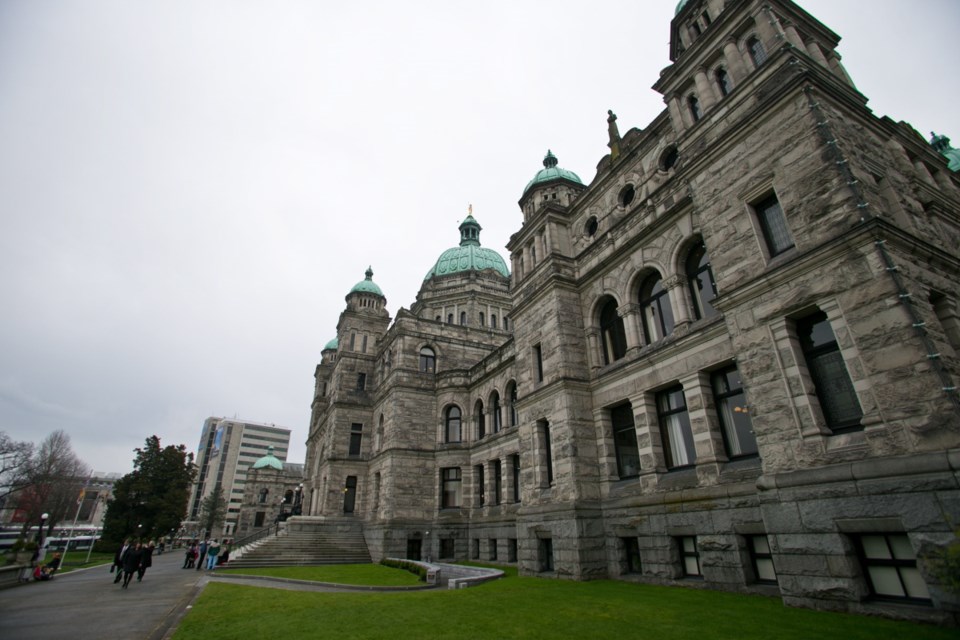The public reaction to the big pay hikes Premier Christy Clark’s office quietly arranged for B.C. Liberal government aides got a lot bigger and louder than they expected.
It was originally viewed as something that was necessary but probably unpopular, so best executed right at the start of the term, when there’s more margin for error.
But it looks like the government used up all its margin of error and then some.
It turned into a hot-button issue that prompted a lot more sustained indignation than the premier and her team were forecasting. That’s the last thing Clark needed when she is still running for office in the Westside-Kelowna byelection.
The pay hikes and title changes that turned ministerial assistants into chiefs of staff potentially making almost as much or more than base rate MLAs might have looked good on paper when Clark’s senior advisers charted it out.
But somebody overlooked the fact she’d just won an election based partly on an austerity budget and smaller government. When you get voted into office on that basis and then turn around and give big pay hikes to your nearest political appointees, people are going to talk.
Which they did. Loudly.
So any rationale they might have had about why the new arrangement was such a good idea was ditched eight days after it was advanced. Clark announced the new pay scale is being abandoned and almost the whole cadre of aides will go back to what they were paid before. All they get to keep is the new “chief of staff” titles — if that’s any consolation.
Clark was a lot more forthright in acknowledging it was all a mistake than her government was when the raises were approved. They were accomplished quietly by way of unpublicized cabinet order that the New Democrat Opposition was the first to discover.
On Wednesday, she frankly admitted it was a mistake.
“I don’t think the raises struck the right note … . Part of leadership is listening to people and then acting on what you hear,” she said.
“Giving raises didn’t sit well with citizens … . We heard loud and clear that people didn’t like it … . It wasn’t consistent with what I said during the election — that we’re going to control spending, we’re going to try to make government smaller if we can and that’s going to mean tightening our belt. So that’s why I’m fixing it.”
It was originally defended on the premise that it actually saved money. Some aides would get more, but with various shuffles the bottom-line cost would have come in smaller than before.
That was the government’s line, but it was a bogus, misleading one.
That would have held true only for a year or so. A new higher pay grid would obviously be more expensive over time.
The jobs are very political, which also rankled people. Two of the new aides came directly from the B.C. Liberal re-election campaign. One of them was a failed candidate.
And virtually all of the existing aides moved from the legislature to the B.C. Liberal campaign on the day it started.
So when they got back to their desks and found hefty pay raises, it looked like a straight victory bonus to campaign insiders — courtesy of taxpayers.
NDP Leader Adrian Dix, campaigning in Kelowna, said his party has been raising the issue a lot and “people were definitely saying how unacceptable it is.”
“When the first item is to jack up the salaries of political staff, it shows them to be out of touch,” he said.
“This is what they do if they’re not held to account. That’s why we pushed so hard to see them rolled back, and made it politically necessary.”
Dix cheerfully called the premier’s reversal the NDP’s first win of the byelection campaign.
The downside for the NDP is that it puts a big hole in their question-period lineup when the legislature resumes next week.
Which was probably also on Clark’s mind when she decided to scrub it.
Her move will curb a lot of the potential for the indignation to turn in to a full-blown byelection issue.
If keeping Westside-Kelowna voters in a good frame of mind is now a priority, it makes you wonder how many other headaches — such as wheelchair user fees — are going to be made to go away.



